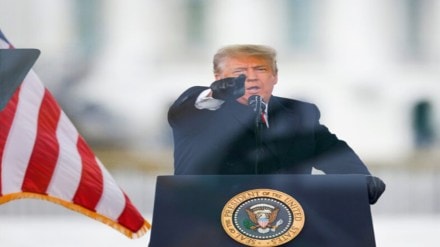Trump administration’s MAGA push is gaining traction before the next year’s mid-term elections in America. Two key developments regarding the H-1B visa system are already in place, making it difficult for US firms to hire foreign workers.
The introduction of a $100,000 H-1B petition fee for each foreign worker will make it more expensive for US companies, while the second proposal is to launch a wage-based selection process.
US companies are being forced to either hire the best-skilled foreign talent by offering a higher salary and the $100k petition fee or hire American workers.
After H-1B, the next focus for the Trump administration could be the Optional Practical Training program available to international students.
Optional Practical Training (OPT) allows F-1 students to engage in temporary employment linked to their field of study. Students may apply for up to 12 months of OPT authorization both before and after completing their academic programs. Science, Technology, Engineering and Mathematics (STEM) students may apply for a 24-month extension of their post-completion OPT employment authorization.
For many overseas students, the Optional Practical Training program serves as a stepping stone toward an H-1B visa. The journey of a foreign student in the U.S. includes transitioning from an F-1 visa to participating in the OPT program and eventually securing employment with a U.S. company via an H-1B visa.
White House Deputy Chief of Staff Stephen Miller, the main architect of the Trump administration’s immigration policy, aims to end or greatly restrict the immigrant talent pipeline stemming from international students acquiring Optional Practical Training and H-1B status, asserting that this would benefit American citizens.
OPT program termination proposals have been floated by several top lawmakers and US administrators.
Jessica Vaughan, Director of Policy Studies at the Center, has criticized the present Optional Practical Training program and proposed that Congress consider tightening or abolishing such visa categories.
Joseph Edlow, Director of US Citizenship and Immigration Services, has said that USCIS should remove OPT job authorizations for F1 students outside of school because the Act does not allow for such authorization.
US lawmakers also propose taxing international students’ earnings from the Optional Practical Training (OPT) program, which currently exempts them from FICA taxes, if passed.
In another development, the Department of Homeland Security (DHS) proposed a rule to replace the existing “duration of status” system for academic visas, imposing a fixed four-year limit on F-1 students.
As a result, the US seems to be falling off the grid for international students as a preferred destination for studying abroad.
Preliminary projections by NAFSA, an Association of International Educators and JB International estimate that a 30-40 percent decline in new international student enrollment in the United States this fall could result in a 15 percent drop in overall enrollment. Without significant recovery in visa issuance in July and August, up to 150,000 fewer students may arrive this fall.
